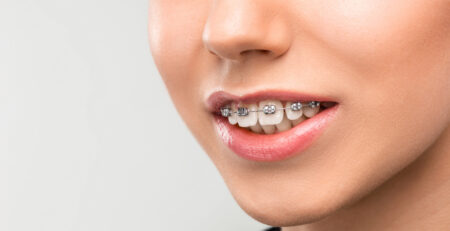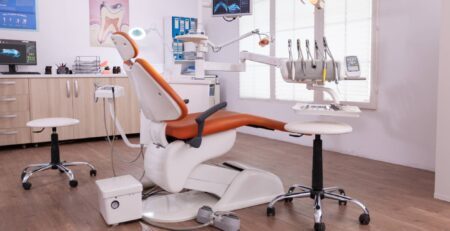Dentists Or Orthodontics – Which One Do You Need?
There are many reasons why you may need to see an oral health specialist. You may think that every oral issue that you have needs to be seen by a dentist. This is false; sometimes an orthodontist is your best choice. So how do you determine who to contact?
What Are The Differences In Dentists’ and Orthodontists’ Education?
All dentists and orthodontists will have similar educational backgrounds. Both must receive a bachelor’s degree before they can apply for dental school. Dental school is then a four to five-year commitment. After graduating from dental school, a dentist will receive a Doctor of Dental Surgery or a Doctor of Dental Medicine. These are considered the same degree. This is where an orthodontist’s career diverges from a dentist’s. Someone with a DDS or DMD who wants to become an orthodontist must go back to school once again and complete a three year Master’s degree and residency. After they complete this, they are an orthodontist.
So, What Are The Differences In Their Practices?
Dentistry covers a large spectrum of medical needs to do with oral care. Dentists are doctors that deal with teeth, gums, jaws, and nerves within the mouth. Orthodontists are a more specialized area of dentistry, and they deal with correcting bites and straightening teeth.
Who Do You Go To, Then?
Usually, you want to start with your primary dental care provider, which is your dentist. They perform all of your overall dental healthcare needs. You go to your dentist for check-ups, cleanings (performed by a dental hygienist), and x-rays. Two everyday things done by dentists are filling cavities and making models for dentures. Here are some other dental treatments:
- Gum care
- Crowns
- Teeth whitening
- Root canals
- Veneers
- Bridges
As your primary oral health care provider, your dentist can identify when you have bite and teeth alignment issues. Most dentists do not also offer orthodontic treatment on top of general dental services. In this case, your dentist will refer you to an orthodontist who will act as your secondary oral health care provider.
So now you have an orthodontist. This is the doctor you go to when you have any type of alignment issue with your teeth. There are many different treatments that an orthodontist has at their disposal to correct alignment issues. They do more than just put on braces. To treat overbites, underbites, gaps, overcrowding, and other alignment issues, orthodontists use:
- Wires
- Retainers
- Braces
- Invisalign®
- Other corrective appliances
While you need to see a dentist regularly to maintain good oral health, you may be one of the lucky people who does not need braces to correct your bite. If your dentist does refer you to an orthodontist for treatment, it is because it is necessary for your oral health, not just for cosmetic reasons. For instance, if your molars do not all touch, then certain molars will wear down faster than they should which can lead to crowns.
The great thing about Lumina Dental is that in our practice our dentist, Dr. Jiang, also likes to treat orthodontic cases, which is incredibly convenient for all Lumina Dental patients!











